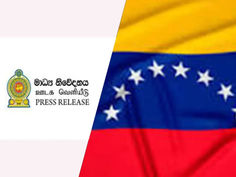Rising H-1B Visa Fees Could Reshape U.S. Tech Talent Pipeline
- Rahaman Hadisur

- Oct 11, 2025
- 2 min read
Hadisur Rahman, JadeTimes Staff
H. Rahman is a Jadetimes news reporter covering Business

The U.S. government’s recent decision to impose a $100,000 fee on new H-1B visa applicants is expected to reshape the country’s skilled labor landscape, potentially limiting opportunities for foreign workers and prompting changes in hiring practices across the technology and finance sectors.
The H-1B visa, which allows employers to hire foreign nationals in specialty occupations, has long been a pathway for skilled talent from countries such as India, contributing significantly to the U.S. workforce. Historically, visa holders often spent brief periods in the U.S., providing expertise while facilitating international perspectives within companies, particularly in grading and professional assessments.
Experts suggest the steep fee will likely restrict companies to sponsoring only highly paid and strategically critical employees. For many fresh graduates or relatively inexperienced professionals, the dream of working in the U.S. may now be effectively unattainable. Analysts warn that this could impact sectors heavily reliant on H-1B talent, including the technology industry, where foreign workers have been instrumental in innovation.
However, the policy change could also yield domestic and international benefits. U.S. companies may increase investment in training local talent, improving job prospects for domestic graduates in the face of AI-driven disruption. Meanwhile, countries like India could retain more skilled workers, potentially boosting domestic entrepreneurship and economic growth.
Despite fewer H-1B entrants, U.S. firms can still access global talent through overseas operations and remote collaboration, maintaining competitiveness and innovation. The U.S. also continues to wield soft power through education, media, and cultural influence, ensuring international engagement regardless of reduced visa inflows.
For certain countries, including Singapore and Chile, citizens remain exempt under the H-1B1 visa scheme, avoiding the new fees and retaining access to U.S. work opportunities.
While the fee hike prioritizes domestic employment and social cohesion, it underscores the need for balance: protecting local labor markets while sustaining economic dynamism in a globalized world. For prospective migrants, opportunities in Asia and other growing economies may increasingly rival traditional paths to the U.S. workforce.











































Comments